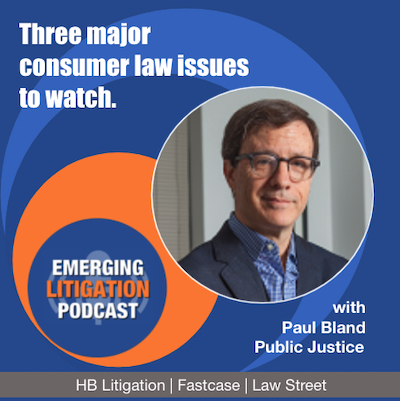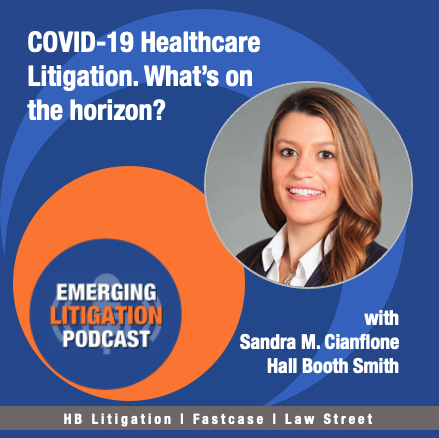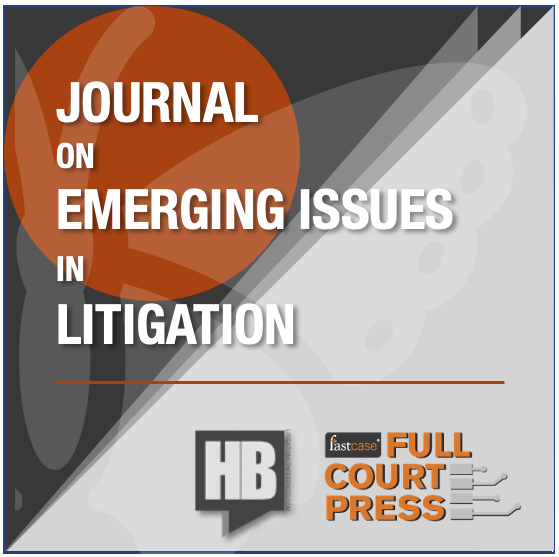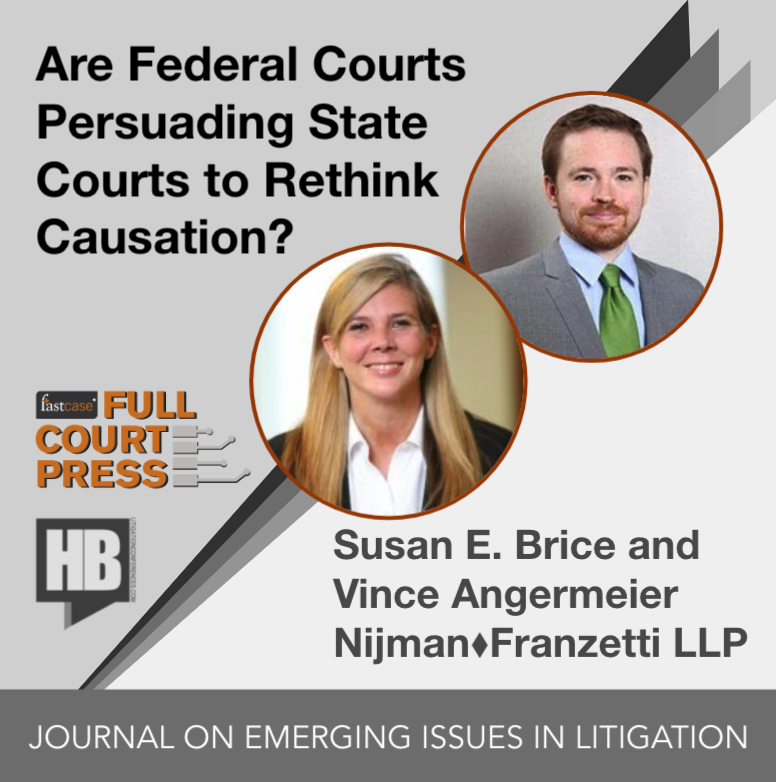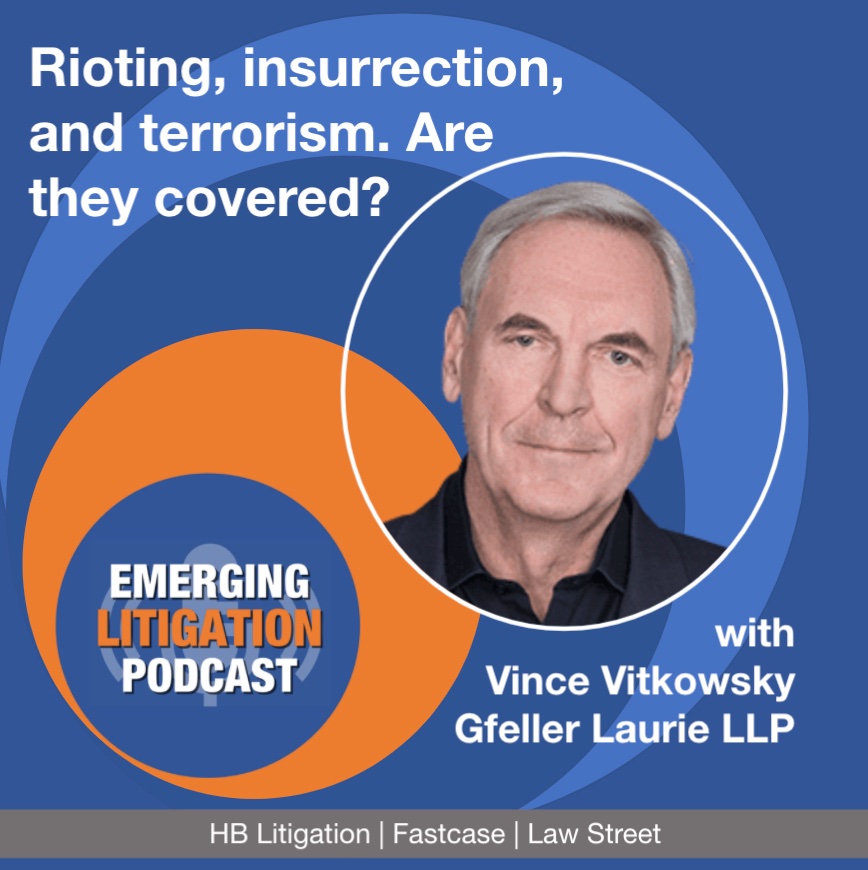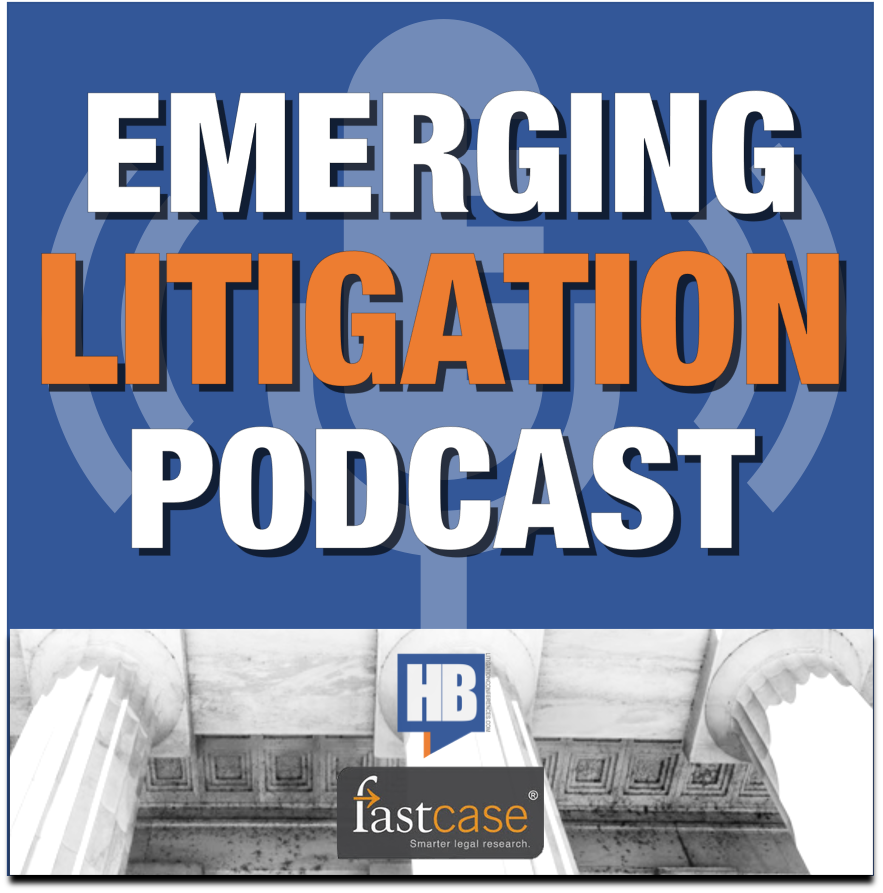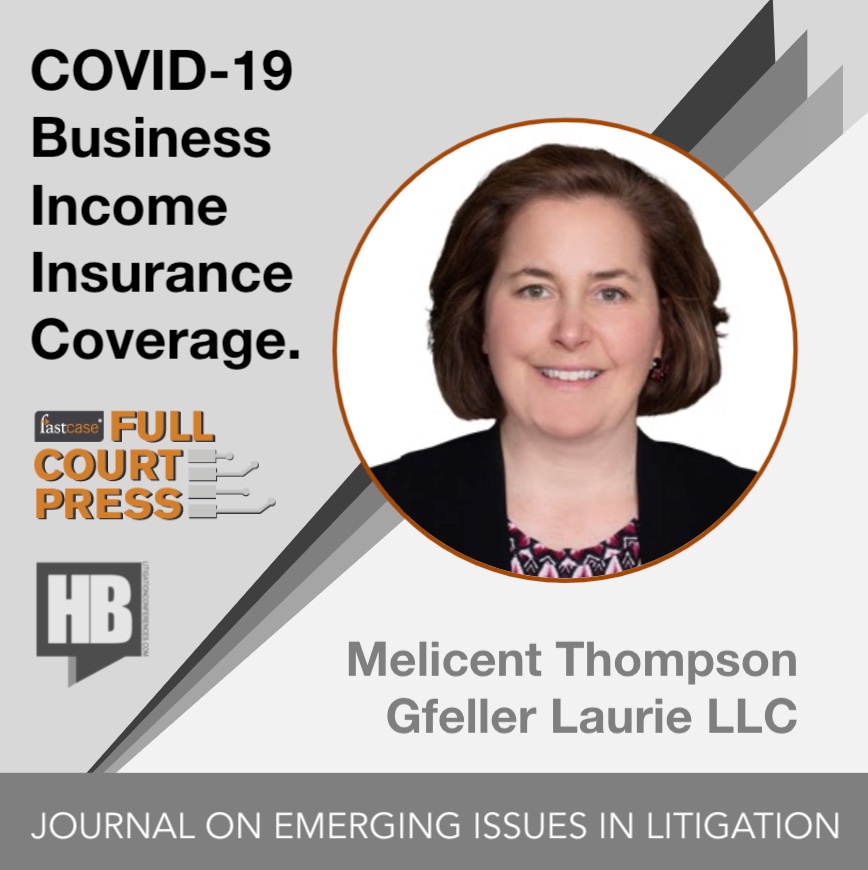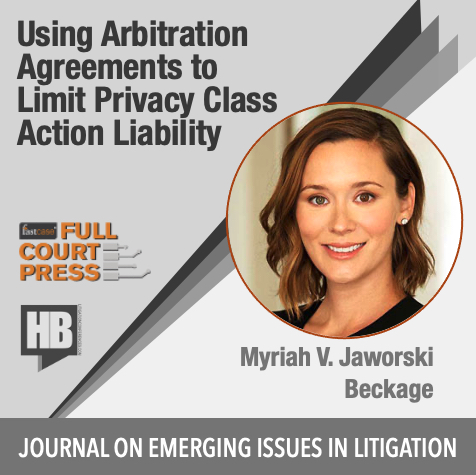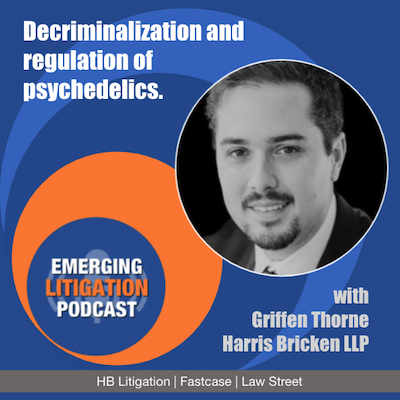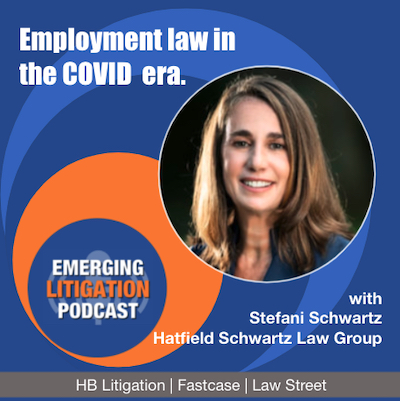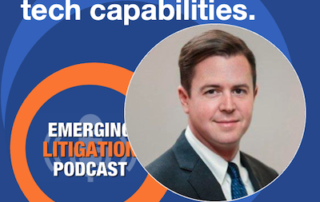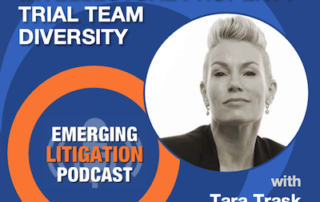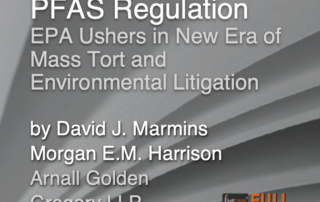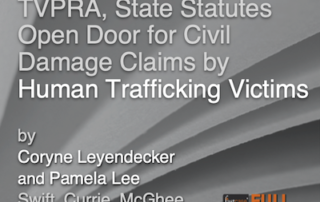Emerging Litigation Podcast
The IRS and Rules About Rules
The Administrative Procedures Act outlines the rules of rule making for federal agencies. Lately it has become a focal point in tax litigation, due in large part to the IRS’s record of refusing to comply with the law's notice-and-comment mandate. Listen to learn more about recent trends in tax litigation. Get an article, too.
Law Firm Technology Directors? Yes.
In this episode we talk about the advantages of having technology and software development capabilities inside your law firm. Can you imagine? And we’re not just talking about someone who is adept at unjamming the printer.
Intellectual Property Trial Team Diversity with Tara Trask
Intellectual Property Trial Team Diversity with Tara Trask Diversity and inclusion initiatives aren’t just valuable for checking off compliance boxes and writing marketing copy. Those benefits are a distant second and third to the genuine value team diversity has on the success of a company or a project. That also means law firms and trials. A recent article published by the American Bar Association Tort and Insurance Practice Section hailed diversity of perspectives for how they improve a team’s ability to resolve legal issues, innovate solutions, and introduce factors homogeneous teams may miss. The National Association for Law Placement reported that women and people of color are making great progress at major law firms. Nearly half of associates are women and, based on summer associate statistics, women are expected to break the 50% as early as this year or next. Black associates made impressive gains, but there remains room for improvement. At the partner level, however, Black and Latinx women and men remain stuck in the low single digits. In this episode we drill down even further to examine trial teams in the intellectual property arena. I was thrilled to speak with Tara Trask, one of the nation’s leading experts on IP trials and juries, having directly worked on or observed more of these proceedings than just about anyone. Tara has championed research on this topic as part of her work and presentations for the American Intellectual Property Law Association. The diversity spark lit up for Tara when she and her panelists enjoyed an enthusiastic reaction to an AIPLA conference session she moderated titled, “Perspectives on Diversity: Views on Trial Teams From the Bench, The Boardroom, and the Jury Box.” Listen to Tara’s insights based on analysis of her own cases, analysis of related studies, and expanded fact-gathering she is leading in collaboration with the association. [...]
A Shameless Plug for Our Content Services
Your content marketing is everything you’ve ever dreamed of. Right?

Critical Legal Content was founded by Tom Hagy, former Editor & Publisher of Mealey’s Litigation Reports and VP at LexisNexis, founder of HB, current litigation podcaster and editor-in-chief. CLC’s mission is to help smaller firms and service providers not only create content — blogs, articles, papers, webinars, podcasts (like the stuff on this site) — but also to get it out there. How? Via social media, this website, your website, and potential via our podcast and journal which we publish in collaboration with vLex Fastcase and Law Street Media. The goal is to attract readers and dizzy them with your brilliance.
*Inspired by actual events.
Create content like a real legal publisher.
Emerging Litigation Journal
FTC v. Amazon: Market Definitions and Section 5 of the FTC Act
Traditional antitrust economics face significant challenges grappling with the relatively new digital economy. The author, Jonathan Rubin examines these and other issues raised in the case of FTC v. Amazon, which he anticipates will be a crucial test for antitrust and the FTC Act.
PFAS Regulation: EPA Ushers in Next Era of Mass Tort and Environmental Litigation
PFAS claims are the next frontier of mass tort and environmental litigation. With the EPA poised to finally enact the first regulation of these chemicals, that frontier is ripe for exploration. This article explores PFAS and the origin of litigation around the substances as well as the state of PFAS litigation and regulation today. It concludes with some thoughts on what to expect when it comes to PFAS litigation going forward.
TVPRA, State Statutes Open Door for Civil Damage Claims by Human-Trafficking Victims
Since 2003, when Congress opened the door for human-trafficking victims to sue for civil damages under the Trafficking Victims Protection Act of 2000 (TVPRA), the TVPRA and similarly drafted state statutes have allowed for human-trafficking victims to seek civil damages against any party that has benefited from their trafficking. Given this expansive inclusion of third-party liability, more and more businesses, especially those in the hospitality industry, are ultimately the ones left to pay for the criminal acts of human traffickers. In this article, the authors, Coryne Leyendecker and Pamela Lee discuss the evolving litigation around human-trafficking claims and offer guidance on how businesses can build a foundation for their own defense while simultaneously helping prevent human-trafficking crimes from occurring in the first place.

